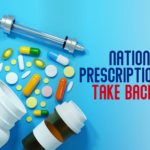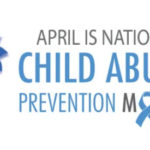We’re all ready to bid farewell to 2020, but are you ready for 2021? Start the year on a path to good health with a New Year’s resolution you can stick to.
 Vague, non-specific New Year’s resolutions are likely to fail. If you want to get healthy, choosing specific, realistic and attainable resolutions can lead to more success. Begin with small changes and measurable goals.
Vague, non-specific New Year’s resolutions are likely to fail. If you want to get healthy, choosing specific, realistic and attainable resolutions can lead to more success. Begin with small changes and measurable goals.
If you spent too much time sitting while we’ve all been home, make a plan to move more. Resolve to stand up and move at least once every hour. The American Heart Association recommends exercising 30 minutes at least five days a week. Take a walk around your neighborhood when it is nice out or set up a circuit workout in your home. If you’re working outside the home, resolve to park farther away or take the stairs instead of the elevator.
Keep it positive. Avoid negative statements like “I will stop eating junk food,” and instead frame it positively, with a plan like, “I will eat fruits for snacks.”
Nearly half of all Americans have high cholesterol. If your goal is to reduce your cholesterol, make the changes specific. “I will use low-fat or non-fat sour cream, dressings and cheese. I will cook fish for dinner once a week. I will eat whole grain bread. I will choose only lean red meat and eat it only on weekends.”
Enter these goals on your daily “to-do list” and make them a priority. Make sure you enable yourself to achieve the goals. If you want to eat healthy meals, those items have to be in the house, available. You have to make a plan for success.
Resolve to visit your doctor. Whether it’s a virtual visit or done safely in person, regular visits with your healthcare provider can be crucial to maintaining your physical and mental health.
And don’t go it alone! Engage your family. Including children in the selection, preparation and cleanup of foods and meals can expand family health goals.
About the American Heart Association
The American Heart Association is a leading force for a world of longer, healthier lives. With nearly a century of lifesaving work, the Dallas-based association is dedicated to ensuring equitable health for all. We are a trustworthy source empowering people to improve their heart health, brain health and well-being. We collaborate with numerous organizations and millions of volunteers to fund innovative research, advocate for stronger public health policies, and share lifesaving resources and information. Connect with us on heart.org, Facebook, Twitter or by calling 1-800-AHA-USA1.












